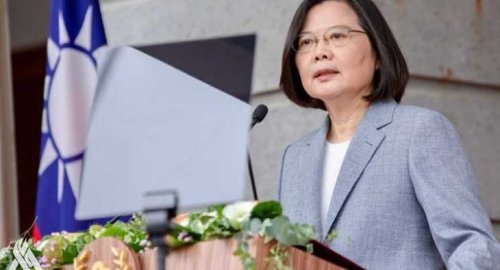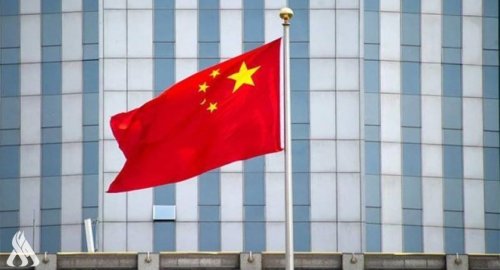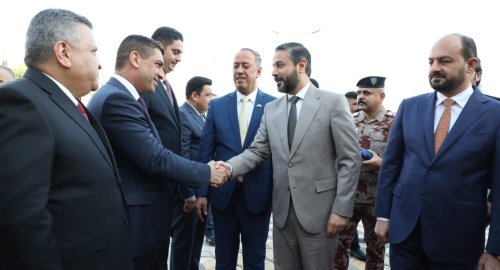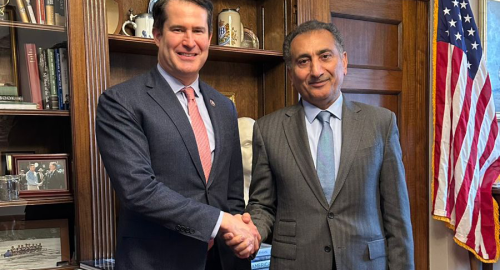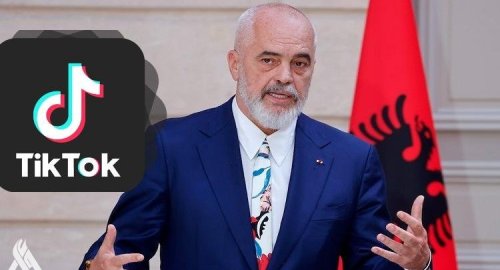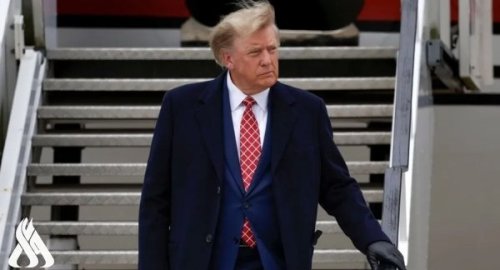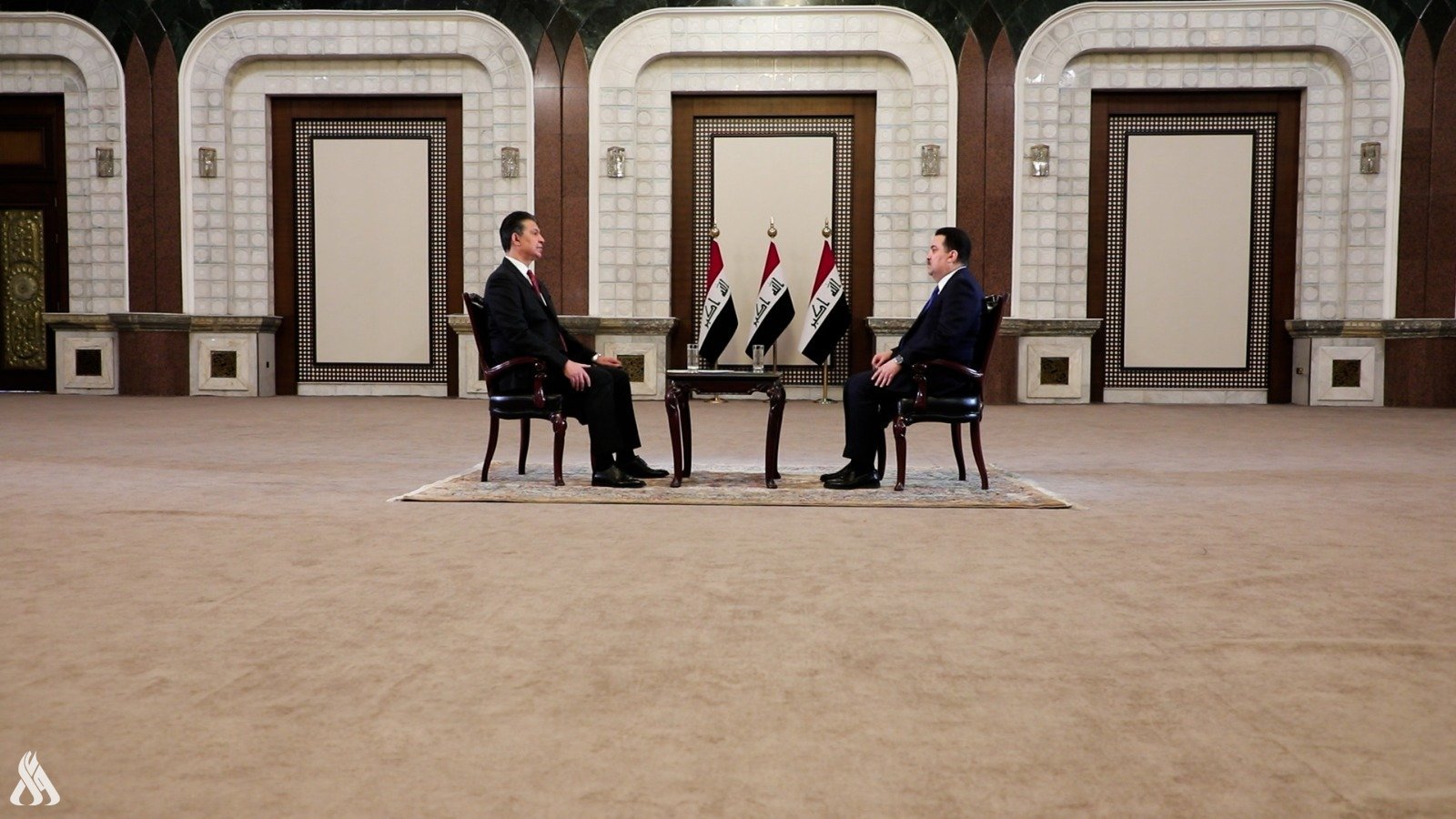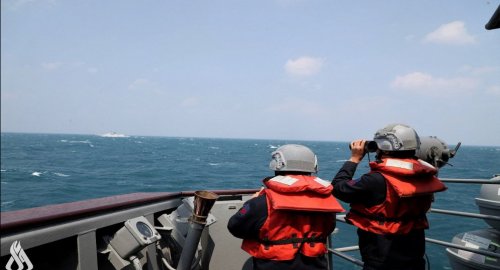
China military rehearses ‘encircling’ Taiwan after US Speaker visit

- 9-04-2023, 09:00
INA- SOURCES
China has started three days of military exercises around Taiwan after the island’s president met the US House Speaker in defiance of repeated threats by Beijing.
The exercises, dubbed “United Sharp Sword,” have been denounced by Taiwan. China sees Taiwan as its own territory and has not ruled out using force to bring it under its control.
The Chinese military’s Eastern Theater Command announced the drills Saturday, describing them as “a serious warning against the Taiwan separatist forces’ collusion with external forces, and a necessary move to defend national sovereignty and territorial integrity.”
“The task force simultaneously organized patrols around the island to create an all-round encirclement and deterrent situation,” the Eastern Theater Command said.
A total of 71 Chinese warplanes crossed over the Taiwan Strait on Saturday. with 45 entering Taiwan’s air defense identification zone, Taiwan’s defense ministry said in a statement.
Nine Chinese People’s Liberation Army (PLA) vessels were also detected.
The drills come a day after Taiwan’s President Tsai Ing-wen returned from a 10-day visit to Central America and the United States where she met US House Speaker Kevin McCarthy.
Beijing had repeatedly warned against the trip and had previously threatened to take “strong and resolute measures” if it went ahead.
China claims the self-governing democracy of Taiwan despite never having ruled it, and has spent decades trying to isolate it diplomatically.
Incursions by Chinese warplanes into Taiwan’s air defense identification zone, a self-declared buffer zone beyond its territorial airspace, occur on an almost daily basis.
Taiwan’s defense ministry said on Saturday it was closely monitoring the situation and would make every effort to defend national security and sovereignty.
“The People’s Liberation Army is deliberately creating tensions on the Taiwan Strait. Besides damaging peace and stability, it also creates negative impact on regional safety and development,” the ministry said.
The ministry had said earlier on Saturday it would respond to the drills in a calm, rational and serious way, and not seek to escalate conflict.
China reacted in a similar fashion when then US House Speaker Nancy Pelosi visited Taiwan in August, launching a series of military drills that surrounded the island and firing missiles over it.
Those drills were the first time China had fired missiles over the island, and many experts saw them as representing a major escalation of China’s military intimidation against Taiwan.
Some of those missiles also fell into Japan’s Exclusive Economic Zone near Japanese islands to the north of Taiwan, a move which heightened tensions between Beijing and Tokyo.
The August exercises also involved dozens of Chinese warplanes crossing into Taiwan’s air defense identification zone as well as PLA Navy warships in maneuvers in waters around Taiwan.
Officials in Taiwan had reportedly been expecting a less severe reaction to Tsai’s meeting with McCarthy because it took place on US soil.
To avoid provoking Beijing and triggering another military crisis, American and Taiwan officials had tried to portray Tsai’s visit as nothing out of the ordinary, citing an abundance of precedents for a Taiwan leader to transit through the US.
But the political significance of Tsai’s meeting with McCarthy is undeniable. It was the highest-level audience a sitting Taiwan president had received on American soil, with an official second in line to the presidency after the vice president.
Their meeting at the Ronald Reagan Presidential Library highlighted the strengthening ties between Taipei and Washington, even though they remain unofficial in nature. The US withdrew its diplomatic recognition of Taiwan back in 1979, meaning it does not officially recognize it as a country. However, it supports Taiwan’s ability to defend itself by selling arms to Taipei.
Following the meeting between Tsai and McCarthy Wednesday, the US House Speaker said his country should continue to boost its support for Taiwan.
“We must continue arms sales to Taiwan and make sure such sales reach Taiwan on time. We must also strengthen our economic cooperation, particularly with trade and technology,” he tweeted.
SOURCE: CNN
Minister OF Higher Education arrives in Anbar
- Local
- 11:01
Albania to close TikTok for a year after teen stabbed to death
- International
- 08:32
Trump: I will stop the chaos in the Middle East and the war in Ukraine
- International
- 10:07
US Central Command: We killed ISIS terrorist leader Abu Yusuf in Syria
- International
- 24/12/20
Liverpool compete with Real Madrid to sign Olympique Lyonnais star
- Security
- 24/12/19
ISC, ADX discuss Strengthening Economic Ties
- Economy
- 24/12/16
Iraq assumes presidency of Arab Investment Company’s Executive Board
- Economy
- 24/12/17
